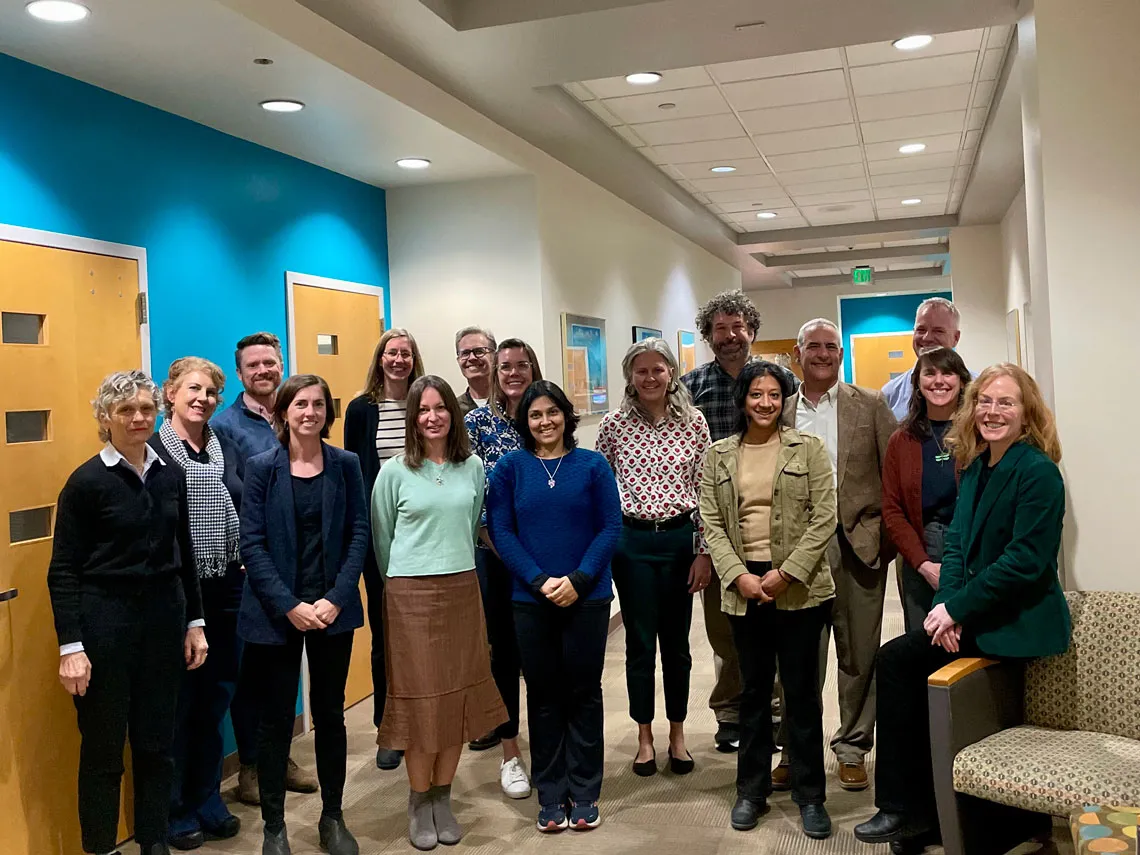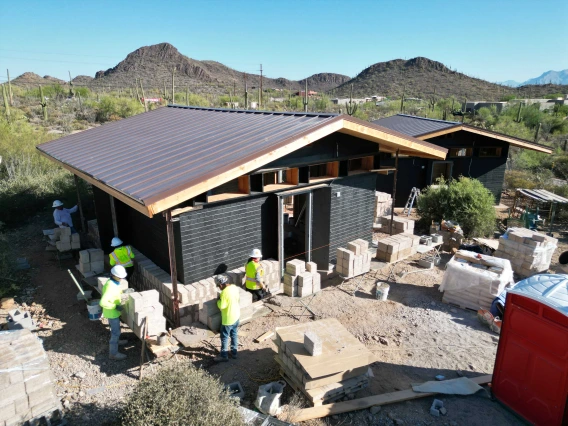Drachman Institute, Southwest Partners Charts Path to Net Zero Urban Water Future

The NZUW research coordination network poses for a photograph at the recent workshop in Albuquerque. The group includes utility representatives and academic co-PIs from Tucson, Denver, Los Angeles, and Albuquerque.
In a bid to confront the pressing challenges of water scarcity and sustainability in the southwest United States, a pivotal two-day workshop was held at the University of New Mexico. Its objective was to lay the groundwork for transitioning toward a Net Zero Urban Water (NZUW) future.
The event, “Achieving a Net Zero Urban Water Future Across the Southwest Annual Workshop on Public Preference,” was conducted with support from a National Science Foundation Research Coordination Network (RCN) grant, and brought together academics, water managers, and government officials from Albuquerque, Denver, Los Angeles, and Tucson – all regions serviced by the Colorado River.
The overarching goal of the RCN is to explore the feasibility and significance of embracing a NZUW approach in arid and semi-arid urban landscapes, where water resources are particularly scarce.
Dr. Rashi Bhushan, a postdoctoral research associate, is working on research aimed at achieving long-term water sustainability in the arid southwest as part of the Drachman Institute. Through her postdoctoral research position, she hopes to address the problem of freshwater scarcity, water inequity, and infrastructure operating challenges amid a changing climate.
Defined in the foundational concept paper published by the multidisciplinary collaborators in 2020, “The NZUW approach entails satisfying a community's needs with locally available and sustainable water sources while preserving interconnected systems and ensuring long-term water supply resilience. It’s a comprehensive strategy that employs progressive targets and a quantitative assessment framework to tackle challenges arising from various drivers of change in urban water systems (Crosson, 2020).”
The recent workshop marked the second in-person gathering in a series of eight workshops scheduled over four years, each focusing on different facets of NZUW. The primary objectives of the workshop were to pinpoint public preference challenges associated with NZUW transitions in the four case study cities and to outline actionable steps needed to address them.
The workshop witnessed active participation, both in-person and virtually, with contributions from a diverse array of stakeholders including academics, water managers, subject matter experts, and government officials, Bhushan said.
The workshop discussed important topics such as understanding what the public prefers when it comes to water, determining what research is still needed, and identifying how public opinion affects the use of new water-saving ideas. Attendees also talked about how communities can work together to save water and what steps each city needs to take next.
As for next steps, the organizers want to write a comprehensive research paper with help from academic and utility partners. They'll share their findings in newsletters, reports, and at conferences.
The goal is to construct a robust NZUW model that can serve as a blueprint for sustainable urban water management across the Southwest, thereby reducing dependence on imported water from the Colorado River and bolstering urban water resilience through a suite of strategies including conservation, reuse, and integration of alternative water sources, Bhushan said.
Leading the charge in this transformative initiative as Principal Investigator is Associate Professor and Drachman Institute Director Courtney Crosson. She has been instrumental in spearheading the RCN to address regional water scarcity and sustainability challenges.
“The impact of this initiative extends beyond the confines of academic discourse, promising tangible benefits for the 40 million people reliant on the Colorado River, while laying the groundwork for more resilient cities and healthier ecosystems in the years to come,” Crosson said. “As the imperative to move progressively toward a Net Zero Urban Water future gains momentum, collaboration and concerted action remain paramount in navigating the complex waters of water management in the arid Southwest.”
Crosson, C., Achilli, A., Zuniga-Teran, A. A., Mack, E. A., Albrecht, T., Shrestha, P., Boccelli, D. L., Cath, T. Y., Daigger, G. T., Duan, J., Lansey, K. E., Meixner, T., Pincetl, S., and Scott, C. A. (2020). "Net Zero Urban Water from Concept to Applications: Integrating Natural, Built, and Social Systems for Responsive and Adaptive Solutions." ACS ES&T Water.



